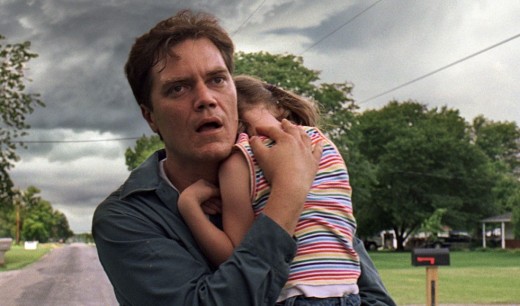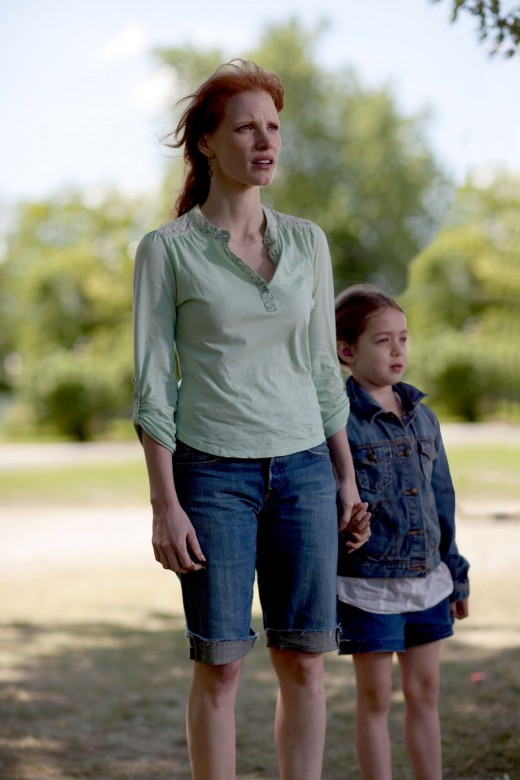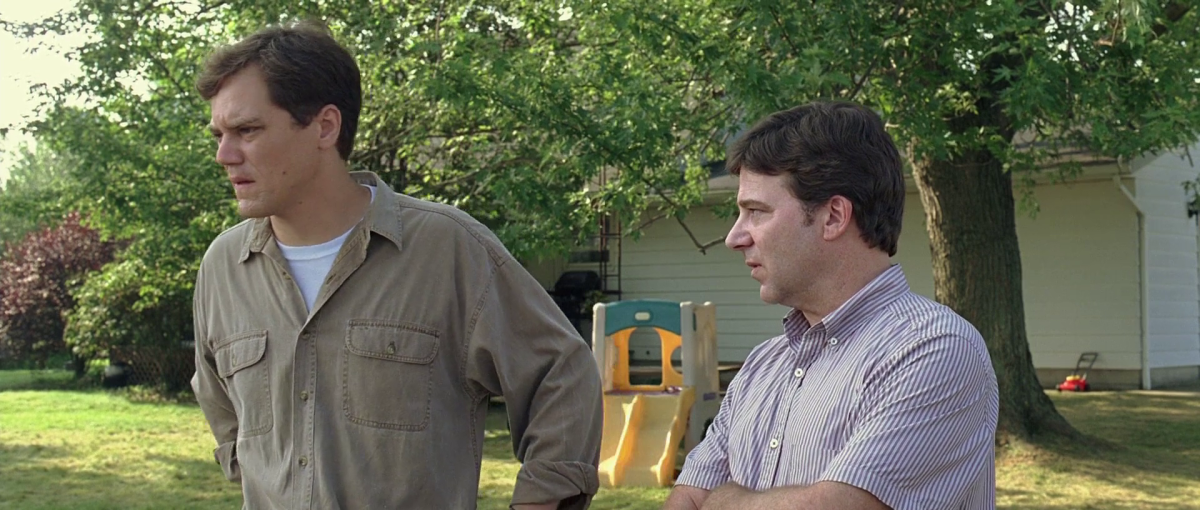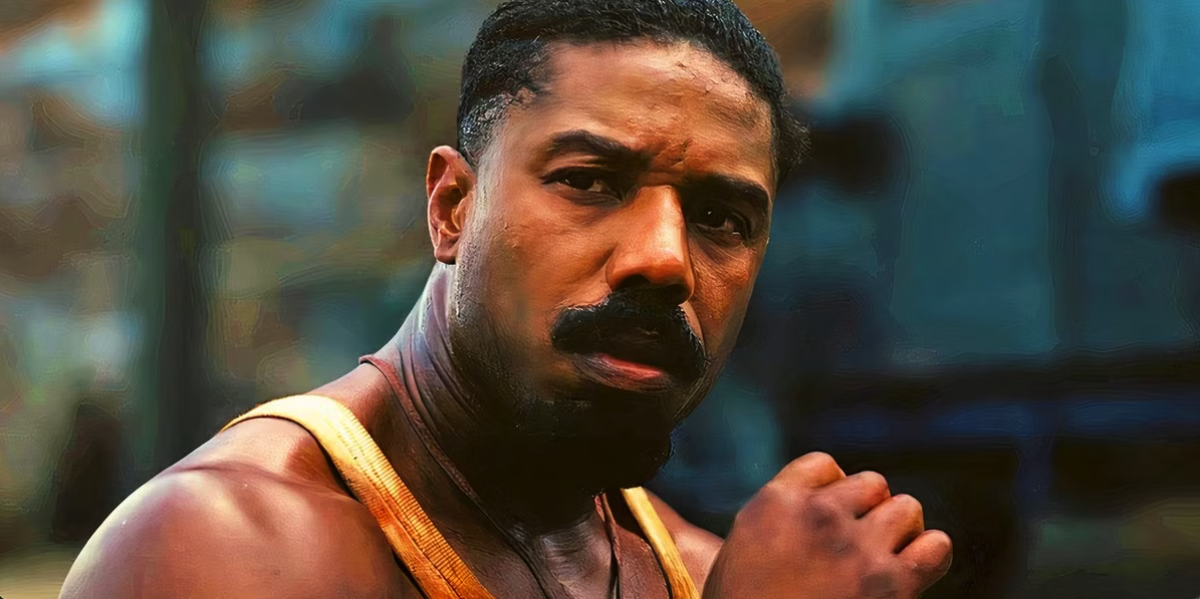Take Shelter (2011)
The Unknown Unkowns

What Are The Right Questions?
Donald Rumsfeld (our former Secretary of Defense) seemed to be abtuse when questioned about specific details regarding the US involvement in Iraq. He said, [T]here are known knowns; there are things we know we know. We also know there are known unknowns; that is to say we know there are some things we do not know. But there are also unknown unknowns – there are things we do not know we don't know.
I bring this quote up because of Rumsfeld's last sentence re. "unknown unknowns."
Rumsfeld was speaking strictly about how these variables apply to the unpredictability of war, but I think the quote can be expanded to cover a lot more territory.
In conection with the movie, the star of the film Michael Shannon (a kind of Billy Bob Thorton progenetor), is confronted with internal and external events that are "unknown unknowns." His major instinct is to protect his family, and he builds an underground shelter, stocks it with food and other essentials in the eventuality that he is not experiencing a psychotic breakdown (as had happened to his mother at his same age). His dreams are so powerful that he loses focus on his "normal" life, thereby losing his job, his best friend, and even putting his wife in a position of needing to move away from him.
None of what he communicates in his dream is ever considered by others to be substantial or of any merit -- even by his psychiatrist.
A Generalized Sense of Impending Doom

Natural Instinct vs. Rationalism
I found "Take Shelter" to be profoundly unsettling. The main character of the story is plagued with terrible nightmares of a storm, which unseats his otherwise (and heretofore) benevolent, work-a-honest-days' work kind of fellow.
The dreams do not only hang on, they seem to get worse with time. He reluctantly consults a psychiatric aid and later a licensed psychiatrist, but neither of these counselors seem to matter.
The vividness and repetition of the dreams defy any ability to lead even a semblance of a functional life. His highly patient and loving wife teeter-totters on leaving her husband, once he loses his job (a consequence of building a sizable storm shelter underground -- and using company equipment and a friend/employee to do the work ... and worse, taking out an unsecured bank loan without even consulting his wife).
The acting, screenwriting, cinematography are well above average.
What makes this film so powerful is that Michael Shannon is completely in the dark about what the dreams portend or if they are the onset of a dementia that affected his mother about the same age.
The other strength of the film is its absolute realism. The characters talk like normal, mid-Western folk. The unraveling of Shannon's dream is a slow process, but by no means a boring one (unless you are used to cars being blow up ever five minutes). No, this has a "real-time" type of pacing, and it lends the director to insert marvelous minutia, character conflicts, inner-uncertainties, abnormalities of nature (real or imagined), and a ponderous build toward the end.
The tension keeps mounting until you feel as if you will finally need to be institutionalized.
The pacing will put the "Transformer" crowd asleep, and that's fine. This is an adult movie, with adult themes, and adult psychology. High praise to the cast and crew for bringing something new to the screen, for taking that chance to break new ground.
It's a pity this movie didn't receive any marketing. To date it's the most stirring movie I've seen in 2012 (although the movie was released theatrically last year). Thank goodness for DVDs.
The Rest of the Family

Fabulous Casting
Besides Michael Shannon who plays the role of Curtis (seemingly without any effort), the film also offers up Jessica Chastain as his wife, Samantha, and Tova Stewart as his daughter, Hannah. The small but strong family unit reflects the kind of unflinching loyality you would like to have with your own significant other but are probably lacking. Curtis works in some kind of drilling business while Samantha is the consummate housewife and guardian over their deaf/mute daughter. Like so many Americans, they are basically living from paycheck to paycheck. When Curtis gets canned -- directly due to his obsession about some forthcoming danger, the marriage is pulled to the breaking point. What is different/refreshing/remarkable is that Curtis finally tells Samantha about his dreams and subsequent fervor over getting an underground shelter ready. Curtis is near his own breaking point, and his wife drops her anger/fear/confusion in order to comfort him. It felt like something out of the "Waltons" in a way but in another way it felt like a couple patching things up on "The Titanic" before hitting the iceberg.
This is the kind of film that M. Night Shyamalan should be creating. "Take Shelter" has a droplet or two from Shamalan's "Signs," Hitchcock's "The Birds," and a few grains of anything by Terrence Malick. I hope Shamalan has a chance to see this particular picture. Perhaps it will inspire him.
Unless I'm mistaken, director Jeff Nichols has got a yellow brick road ahead of him. "Take Shelter" may not have done that great at the box office, but is doing well as a rental/DVD. Plus many critics thought very highly of the film. I'm sure he'll get another shot.
Sound and Musical Score
A final word of recognition of how effective the sound and musical score are to this rather slow-paced motion picture. The sound and score are not obtrusive, but add an immeasurable about of tension to the atmosphere. The sound/music, mixed with the slow pacing, along with scenes that are shot in real time provide this film with an ultra-realistic aura, and it nibbles away at your nerves.
Who Not to Invite
If you are going to watch this film with others, I strongly recommend subtracting those who cannot handle complex, intellectual, atmospheric, psychological movies because they will only be irritated by this endeavor. This is for "thinkers" only.








